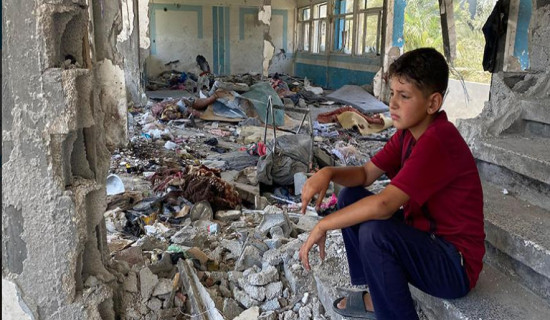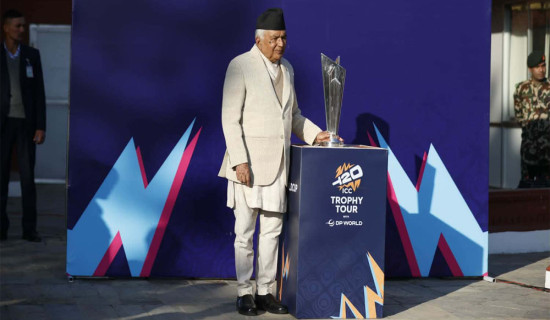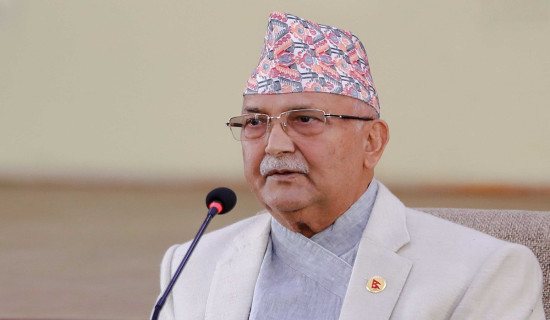- Monday, 5 January 2026
Campaign To Fight VAW
A 16-day campaign against gender-based violence has started, coinciding with the International Day for the Elimination of Violence against Women on November 25. Violence against women is a matter of global concern transcending cultural, economic and social boundaries. The reasons behind such violence are often complex and rooted in historical, social and cultural factors that contribute to the traditionally subordinated status of women in many societies. In this regard, it is encouraging to hear that the government of Nepal, along with various national and international organisations, activists, and survivors, is actively working to eliminate violence against women and girls. They are working on various fronts like education and training of girls and women legislation and policy changes, awareness campaign and rehabilitation.
The news published in this daily on November 25 states that 16,538 cases of domestic violence were reported in the fiscal year 2022-23, but the real scenario of domestic violence could be far worse. Women who are abused and coerced by their husbands or in-laws or both inside the domestic sphere keep quiet due to the fear of social stigma, concern of children’s wellbeing and economic insecurities. Education and economic independence to a large extent can give voice to women and help them to retaliate everyday violence they are subjected to, which take toll on their physical, mental and social well being.
According to Nepal police data, 2,387 cases of rape, 518 cases of attempted rape and 348 cases of child sexual abuse were reported in the fiscal year 2022-23. The brutal rape and murder of minors —13-year-old Nirmala Panta from Kanchanpur, and Samjhana Kami from Bajhang shows how unsafe women are in Nepal, and the fact that the culprits of Nirmala are still not identified mocks our justice mechanism. According to the report, almost 85 per cent of women know their sexual offender, but many a times they don’t report rape and sexual abuses because the society blames the victim instead of punishing the culprit. They are made to believe that it was their dress, or body language that provoked the offender.
Instead of prosecuting the offenders many cases of sexual violence against women are dismissed within the four walls or covered up, which often intensifies the pain of the victims and boosts the morale of the predators. Physical, sexual or psychological harm or assaults on women including threats of rape, sexual assault, coercion and arbitrary deprivation of liberty deter women from living their lives to the fullest. Recognising violence against women as a human rights violation is a crucial step toward creating a world where women can live free from fear and harm. Efforts should be directed not only at responding to and supporting survivors but also at preventing violence through education, awareness, and challenging the societal stereotypes that perpetuate gender-based violence.
While talking about violence against women, violence faced by women in Afghanistan, war-ravaged Palestine, Syria, Iraq, etc. which fail to get due coverage by the mainstream media should not be forgotten. Let’s strive to create a society where women can live without fear of domestic violence, rape, sexual assaults and coercive control of their freedom and mobility.










-original-thumb.jpg)




-original-thumb.jpg)
-original-thumb.jpg)